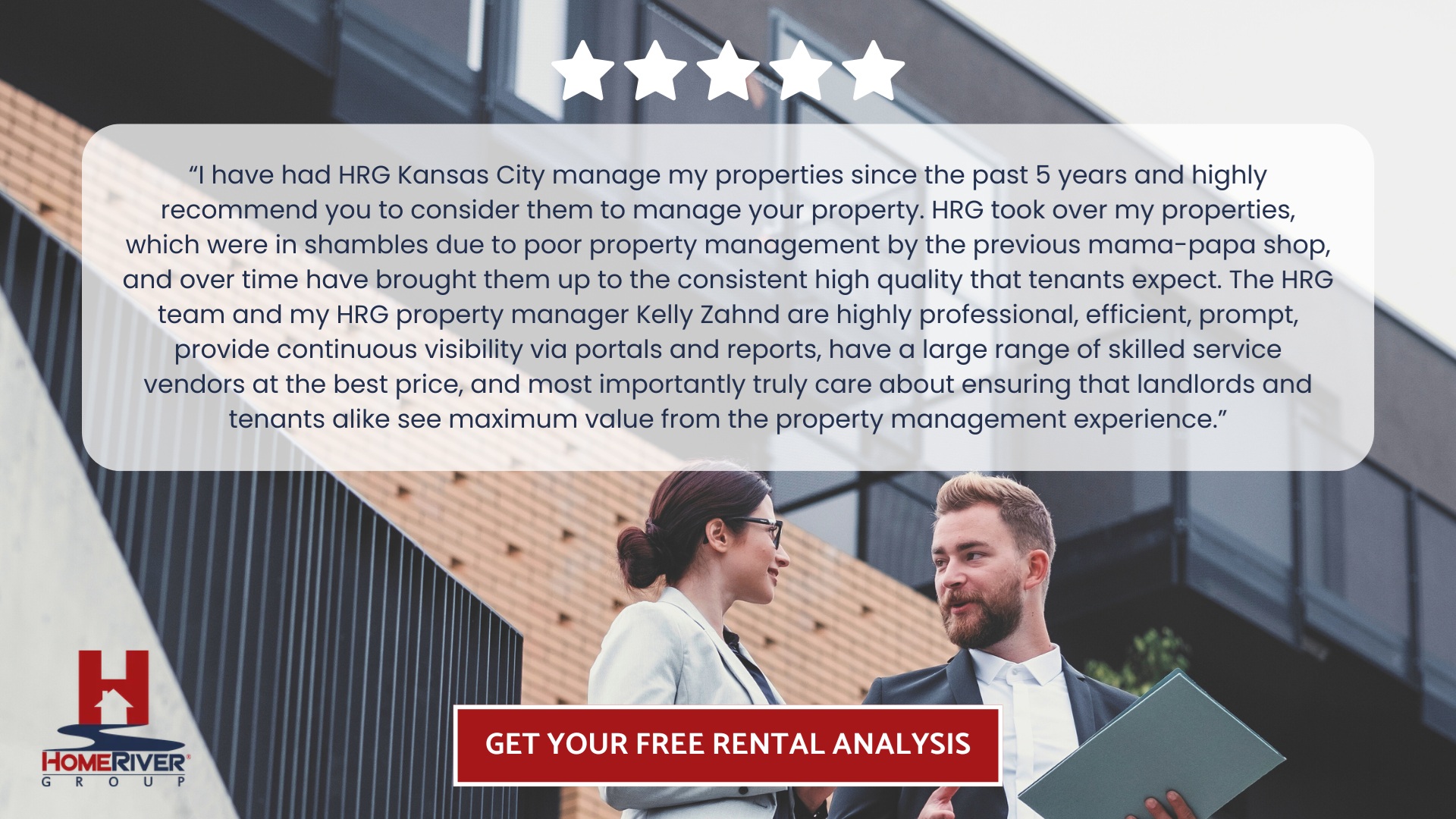
As a leading national property management company, HomeRiver Group is committed to helping property owners make informed decisions that align with their needs and the nuances of local markets. Our expansive, multi-state presence ensures that you receive exceptional service combined with the precision of local expertise.
Navigating property management can often feel daunting, with many decisions that can significantly impact your investment experience. One of the most crucial choices lies in selecting the right type of lease agreement for your rental property. Lease agreements form the backbone of the relationship between property owners and tenants, establishing clear terms and guidelines that define responsibilities and expectations.
In this article, we will explore the different types of lease agreements, their benefits and drawbacks, and how choosing the right one can enhance tenant relationships and align with your investment goals.
Understanding Different Types Of Lease Agreements
Navigating real estate can be complex, especially when determining which lease agreement best suits your needs. At HomeRiver Group, we understand the importance of choosing the right type of lease agreement for your rental property.
Here's a breakdown of some standard options available:
This is the most traditional type of rental agreement, lasting for a predefined period—typically one year. It offers both landlords and tenants stability, as rent amounts and terms are locked in for the duration of the lease. This can be particularly beneficial for property owners seeking predictable income and tenants desiring a secure living situation.
Offering flexibility, month-to-month leases allow either party to alter the terms or end the agreement with relatively short notice, typically 30 days. Such leases are ideal for those who prioritize flexibility, though they can lead to unpredictability in rental income or living arrangements.
A sublease agreement involves the tenant renting out all or part of their property to another party, often referred to as a subtenant. This arrangement can be beneficial if the original tenant needs to leave the property before the lease ends, though it requires careful oversight to ensure the landlord's terms are respected.
Designed for business purposes, commercial leases are more complex and often longer than residential leases. They must account for factors like zoning laws, building regulations, and potential property modifications. Whether it's retail, office, or industrial space, understanding the specific needs of a commercial lease is crucial for successful property management.
Joint leases, often used in shared living arrangements, hold all tenants equally responsible for rent and other obligations. This can foster a sense of shared responsibility but requires careful consideration of co-tenants circumstances and reliability.
Selecting the right lease agreement is key to a landlord’s risk management strategy, helping mitigate potential financial and legal liabilities while ensuring tenant accountability. With HomeRiver Group, we ensure that your involvement in the rental process harnesses both comprehensive market insight and expert management, making the selection of a suitable lease agreement seamless and efficient.
Net Leases: Single, Double, And Triple
When exploring the various types of lease agreements, net leases stand out as a unique option frequently employed in commercial real estate. Still, they can also be relevant for certain residential arrangements. A net lease requires the tenant to cover some or all of the property's operating expenses, including taxes, insurance, and maintenance.
Let's break down the different kinds of net leases:
Single Net Lease (N Lease)
In a single net lease, the tenant is responsible for paying a base rent plus a portion of the property tax. This kind of lease is relatively rare, as landlords often prefer to distribute additional expenses across other parties. However, it can be advantageous when property taxes fluctuate, allowing landlords to transfer some financial risk to tenants.
Double Net Lease (NN Lease)
A double net lease requires the tenant to pay the base rent, property tax, and property insurance. This agreement is more common than a single net lease and offers a balance for landlords and tenants, sharing the responsibility of property expenses. For property owners under HomeRiver Group's management, understanding such lease structures can be useful in devising agreements that align with market standards while accommodating tenant needs.
Triple Net Lease (NNN Lease)
The most comprehensive form of a net lease, the triple net lease, makes the tenant responsible for the base rent and all operating costs, including taxes, insurance, and maintenance. It's particularly favored in commercial real estate because it provides landlords with stable and predictable income streams. As a part of HomeRiver Group's national platform, deploying a triple net lease can offer property owners reduced management burdens, leaving tenants to handle the many operational aspects themselves.
Understanding these net lease variations enables property owners and tenants to craft agreements that optimize their financial and operational obligations.
Pros And Cons Of Different Lease Types
Understanding the various lease agreements available when managing rental properties can significantly impact your investment strategy and tenant satisfaction. Each lease type has its benefits and drawbacks, allowing property owners to select the best fit for their business model and tenant needs.
Pros Of Fixed-Term Lease
A fixed-term lease offers stability, locking tenants into a rental period—typically one year or more.
Provides predictable cash flow and stable occupancy rates.
Protects property income from sudden vacancies.
Limits rent increases to specific times, usually upon lease renewal.
Cons Of Fixed-Term Lease
Less flexibility if market conditions change or if a problem tenant needs addressing before the lease ends.
Potential for negative financial impact if a tenant breaches lease terms and vacates early.
Pros Of Month-to-Month Lease
The month-to-month arrangement offers flexibility for both landlords and tenants. It automatically renews each month until either party gives notice.
Easier to terminate or alter the lease terms with short notice, typically around 30 days.
Ideal for testing tenant-landlord compatibility or adapting to market changes quickly.
Cons Of Month-to-Month Lease
Increased risk of vacancies and the need for frequent tenant turnover and marketing efforts.
Potentially less predictable income stream due to tenants' lack of long-term commitment.
Pros Of Sublease Agreement
A sublease involves an existing tenant leasing their rented space to another outside party, handing over parts of their rights.
Allows tenants flexibility, potentially reducing vacancy periods without losing original tenant obligations.
Useful in maintaining occupancy if a tenant needs to vacate temporarily.
Cons Of Sublease Agreement
Dilutes the control of the property owner over tenant selection.
Possible legal complexities if sublease terms are breached, requiring scrutiny of subtenants.
Pros Of Commercial Lease
Tailored for business properties, a commercial lease represents a longer commitment, ranging from three to ten years.
Stable, long-term income with lower tenant turnover once businesses establish themselves.
Ability to negotiate comprehensive terms, such as rent escalations and property improvements.
Cons Of Commercial Lease
Finding new tenants might be more complex and time-consuming should a business vacate.
Legalities can be more intricate, necessitating more detailed negotiations and agreements.
Choosing the right type of lease agreement can greatly influence your property's success. If you're considering expanding your rental portfolio, knowing the best neighborhoods in Jacksonville to buy and rent can help identify high-demand areas with strong rental potential. At HomeRiver Group, we assist property owners in making informed leasing decisions to optimize their rental property's performance across various markets.
Understanding Tenant And Landlord Responsibilities
When understanding the types of lease agreements available, it's crucial to grasp the responsibilities of landlords and tenants within each contract. At HomeRiver Group, we emphasize that understanding these responsibilities ensures a harmonious and efficient rental experience for both parties.
Tenant Responsibilities
Tenants play an integral role in maintaining the property and adhering to the terms of the lease agreement. Key responsibilities often include:
Timely Payment of Rent: Tenants are expected to pay rent on time as specified in the lease agreement.
Property Maintenance: While landlords handle major repairs, tenants are usually responsible for minor upkeep and maintaining the property's cleanliness.
Adherence to Rules: Tenants must comply with any specific rules set out in the lease, such as restrictions on pets or property alterations.
Landlord Responsibilities
Landlords, in turn, must ensure the property is livable and the rental process runs smoothly. Essential duties include:
Property Maintenance and Repairs: Landlords must ensure the property is safe and in good repair and promptly address any major issues reported by tenants.
Legal Compliance: Landlords are responsible for complying with all local and federal housing laws, including security deposit regulations and fair housing standards. If you're renting in North Carolina, knowing five things a landlord cannot do in North Carolina can provide insight into tenant protections and legal compliance.
Providing a Secure Environment: It's the landlord's duty to provide a secure living environment, such as installing appropriate locks and security systems as necessary.
Understanding and clearly defining these responsibilities in the lease agreement protects both parties' interests and enhances the rental experience. At HomeRiver Group, we facilitate this process by offering property owners comprehensive management services, ensuring commitments are met on both sides.
Legal Considerations In Lease Agreements
When considering the types of lease agreements for your rental property, it is crucial to address the legal considerations involved to ensure compliance and protection for both parties. At HomeRiver Group, our national presence and local expertise empower property owners with comprehensive support in understanding the legal intricacies.
Understanding Lease Terms
A lease should clearly outline each party's duration, rent amount, and responsibilities. This provides a legal foundation that helps avoid disputes and misunderstandings.
Local And State Regulations
Lease agreements must adhere to state and local rental laws, which vary widely. Compliance with these regulations is vital to avoid legal disputes and ensure fair treatment of tenants. If you're renting in Texas, knowing the maximum rent increase allowed in Texas can help landlords stay compliant while maintaining fair pricing for tenants.
Security Deposit Stipulations
The lease should specify the terms concerning security deposits, including the amount, use, and conditions for return. Legal requirements often dictate how these deposits should be handled to protect tenant rights.
Eviction And Termination Clauses
Include comprehensive clauses on the conditions under which a lease may be terminated or a tenant evicted. This is critical for protecting property owners while ensuring tenants understand their lease obligations.
Disclosures
Certain disclosures, such as information about lead-based paint in older properties or any known damage, may be legally required. Transparency here builds trust and satisfies legal obligations.
Amendment Procedures
Clearly define how amendments to the lease will be handled. This provides a structured process for implementing changes, ensuring that both parties agree, which helps maintain a harmonious landlord-tenant relationship.
Navigating these legal considerations with precision is essential. At HomeRiver Group, our expertise in property management across multiple states ensures that your lease agreements are effective and legally sound, providing you with peace of mind and reliable tenancy.
Final Thoughts
Choosing the right type of lease agreement is crucial in setting the foundation for a successful rental experience. As a property owner or manager, understanding the nuances of different lease types can significantly enhance your ability to attract the right tenants, protect your investment, and ensure a smooth operation. Whether it's a fixed-term lease that provides stability, a periodic lease that offers flexibility, or a commercial lease tailored for business needs, each has unique advantages and considerations.
At HomeRiver Group, we recognize the importance of meticulously crafted lease agreements. Our extensive national platform, combined with unrivaled local expertise, positions us as a leader in the property management industry. We are dedicated to offering unparalleled service and support to property owners, empowering them to make informed decisions that align with their goals and market dynamics.
Rest assured that your property is our priority when you partner with us.
Read also:
Does Property Management Include Maintenance? What To Expect
How To Maximize Your Rental Income: Proven Strategies For Landlords
Frequently Asked Questions About Types Of Lease Agreements
How do I choose the right lease agreement for my rental property?
Choosing the right lease agreement depends on your specific rental needs, the market conditions, and the type of tenants you are targeting. Consider variables such as the length of stay you prefer for tenants, flexibility needs, and how often you want to evaluate or adjust lease terms. Consulting with a property management expert, like HomeRiver Group, can provide valuable insights.
What are the advantages of a periodic lease?
Periodic leases, such as month-to-month agreements, allow both landlords and tenants greater flexibility. They enable easy adaptation to market changes and provide the opportunity to adjust rental terms with appropriate notice.
Can I switch from a fixed-term lease to a month-to-month lease?
Yes, transitioning from a fixed-term lease to a month-to-month lease is possible. You typically need to wait until the fixed-term lease expires and then agree with the tenant on a new month-to-month arrangement.
What is a sublease agreement?
A sublease agreement allows a tenant to rent out their leased property to another person (subtenant) while continuing to fulfill the original lease terms with the landlord. Subleasing provides flexibility for tenants who need to leave temporarily but want to retain their lease.
What are the different types of lease agreements?
Various lease agreements include fixed-term, month-to-month, sublease, and periodic leases. Each type serves different rental strategies and tenant needs. Understanding the nuances of each can help you make an informed decision about which one aligns best with your goals.
What should I include in a lease agreement?
A comprehensive lease agreement should include the lease duration, rental amount, payment terms, tenant obligations, property maintenance responsibilities, and policies on alterations or subleasing. Consult a professional property manager or legal advisor to ensure all legal aspects are covered.










